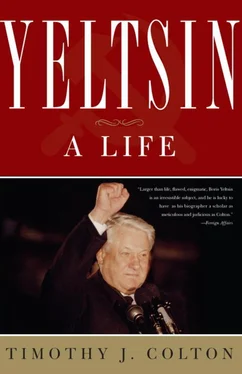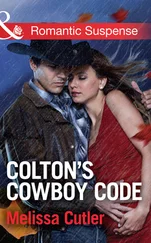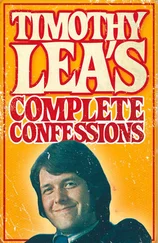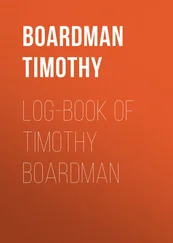Although vast collective forces were involved in its creation and development, communism was also an artifact of leadership, of concerted action to mobilize people for a joint purpose. So, at the outset, was the effort to save communism from its own follies—Gorbachev’s perestroika, or “restructuring” of the system. Gorbachev reminds us that “perestroika started from above. It could not have been otherwise in totalitarian conditions.” 15The Soviet old guard warded it off as best they could. Newcomers to the corridors of power gave it impetus and vied over its direction. They set the terms under which non-leaders, in concentric circles, entered into it. Not always alert to the effects, they let change snowball from reform to revolution. Thereupon, Yeltsin, and the subset of leaders who had hitched their chariot to his, came to constitutive choices about the future after communism and after the USSR.
The downplaying of Yeltsin, therefore, can be ascribed neither to his having too much stature and influence nor to his having too little. The clincher is something else again: that his odyssey from Homo sovieticus to Homo antisovieticus and Homo postsovieticus confronts us with one paradox after another. The Oxford English Dictionary gives a pair of primary definitions for “paradox”: “a phenomenon that exhibits some contradiction or conflict with preconceived notions of what is reasonable or possible” and “a person of perplexingly inconsistent life or behavior.” Yeltsin squares with both.
Yeltsinism scorned canonic wisdom in and about his motherland and flouted policies he had previously embraced. It has rightfully been said that no other contemporary leader “has played this many political roles” in a single lifetime. 16The scion of an agrarian household dispossessed by the Stalinists, Yeltsin led a hardscrabble Soviet childhood. Somehow, he became a CPSU stalwart and rose to a seat on its Politburo. He then turned out, phantasmagorically, to renounce his party card and be the communists’ nemesis. On October 21, 1987, he made what I call his “secret speech,” a phrase coined originally for Nikita Khrushchev’s denunciation of Joseph Stalin at the Twentieth Congress of the CPSU on February 25, 1956. His critique of Gorbachev’s policies led to dismissal from the party inner circle only two years after he had been admitted into it and to Yeltsin becoming leader of the opposition to Gorbachev, seeking to change the system radically from without. Innocuous as it might appear by comparison, the 1987 speech was as momentous a chapter in the history of communism as Khrushchev’s in 1956. On August 19, 1991, Yeltsin, this former party prefect in Sverdlovsk province, a beehive of the USSR’s military-industrial complex, stared down a hard-line coup d’état from the armor of a battle tank manufactured in that same province, and in a factory he knew inside out. “Life presents us with surprising paradoxes,” marvels one Muscovite raconteur. “Isn’t it amazing that destiny prepared the part of executioner of the Soviet system for… a Yeltsin who… was the archetypal Soviet man?” 17This dragon slayer sallied forth from the belly of the beast.
Paradoxes proliferated in the new Russia. Gorbachev in charge had distended cherished institutions and identities; Yeltsin shattered them and devised substitutes. While the changes he instituted were revolutionary in their scope and consequences, he recoiled from pronouncing them that. “The quintessential anti-revolutionary revolutionary,” 18he was as bent on moderating the revolution as on making it, and inducted into his administration a battalion of the functionaries from the party elite, the nomenklatura, he had been busy attacking as hoary reactionaries. Having catapulted to power as a populist critic of official privilege and arrogance did not deter Yeltsin from building a grossly unequal capitalist economy or ordering his conscript army to wage war in the breakaway republic of Chechnya. And his seasoning in the Communist Party apparatus predisposed him to construct a Russian “superpresidency” that fit uneasily with the democratic way.
All that said, Yeltsin refused to set up a disciplined post-communist party allegiant to him and in the parting act of his presidency he voluntarily relinquished power. In decisions like the privatization of industry, territorial devolution, and support for autonomous communications media, he frequently employed power to disperse power. In 1999, withal, the person to whom he ceded his position was a product of an organization that was an embodiment of Soviet values as staunch as the defunct CPSU: the KGB, the secret police that in Yeltsin’s youth had oppressed his kinfolk. As if that were not mystifying enough, Yeltsin, baptized Orthodox at birth and having been responsible in the 1970s for demolishing the house in which the Romanovs, Russia’s last royal family, were executed, gave them a Christian burial as president in 1998, and, in retirement, rediscovered religion and was interred amid full church rites in 2007.
Looking back at this dialectic with all the benefit of 20/20 hindsight, it is far from obvious what to take from it. And it is far from easy to escape the impression that one is chasing a slippery and constantly moving quarry.
Likewise, Yeltsin the man teemed with inner complexities. Bill Clinton, who saw him at close quarters in eighteen negotiating sessions, likened him to “an Irish poet” or an artist who “sees politics as a novel he’s writing or a symphony he’s composing.” 19Clinton, a person of some complexity himself, and also given to reinvention and to questioning general frameworks, is an approving observer. In researching this volume, I have heard an earful of other similes, and not all are as appreciative of Yeltsin. A sampling would be those drawn to:
• Roles and occupations: aerialist, architect, boss, builder, chef, chess master, chieftain, Cossack, criminal, crusader, deceiver, demagogue, democrat, diva, drummer, foreman, godfather, grandpa, hedonist, hermit, jester, knight, lord of the manor, magus, man on a white horse, martyr, mutineer, neo-Bolshevik, patriarch, pied piper, prizefighter, reformer, revolutionary, roughneck, shock worker, sorcerer’s apprentice, sultan, surgeon, thespian, tsar, Viking;
• Historical personages: Alexander the Great, Muhammad Ali, Julius Caesar, Fidel Castro, Cincinnatus, Christopher Columbus, Deng Xiaoping, Galileo, Charles de Gaulle, Boris Godunov, Harry Houdini, Ivan the Terrible, Andrew Jackson, Jesus, Lyndon Johnson, Judas, Nikita Khrushchev, Lenin, Abraham Lincoln, Huey Long, Mao Zedong, Napoleon, Richard Nixon, Peter the Great, Augusto Pinochet, Vidkun Quisling, Franklin Roosevelt, Pëtr Stolypin, Margaret Thatcher;
• Characters from literature and folklore: King David, Faust, Gulliver, Hamlet, Haroun al-Rashid, Hercules, Robin Hood, Icarus, Ivanushka, Lazarus, King Lear, Il’ya Muromets, Oedipus, Don Quixote, Samson, Tom Sawyer, Leonard Zelig, Zeus;
• Physical objects and forces: battering ram, cyborg, electric shock, false-bottom suitcase, hurricane, mannequin, puppet, sledgehammer;
• Animal species: bear, boa constrictor, bull, bulldog, chameleon, crocodile, eagle, elephant, phoenix, tiger, tortoise, wolf.
Many of these will be discussed in the chapters that follow. It can be said here that no one image captures the whole man. As those who worked closely with him can confirm, the qualities that made Yeltsin tick always eluded others: “Much about him is arcane and under figurative lock and key.” 20The ideological doyen of perestroika, Aleksandr Yakovlev, noted that Yeltsin had “not a little of the extravagant” to him and regularly incorporated polar opposites. “He was too credulous and too suspicious, too daring and too careful, too open and too inclined to crawl back into his shell.” 21The same politico who at incandescent moments, especially of risk and crisis, could move mountains, could on other days be maddeningly indecisive or self-indulgent. In demotic memory, unfair as it is, the snapshot of Yeltsin on the tank in Moscow in August 1991, the valiant defender of democracy, collides with the Yeltsin of August 1994, when he tipsily conducted a German band alfresco at Berlin’s city hall. He could be “both a very big man and a very bad boy,” in the breezy epigram of Strobe Talbott, a fly on the wall at all of President Clinton’s summits with Yeltsin. 22
Читать дальше












